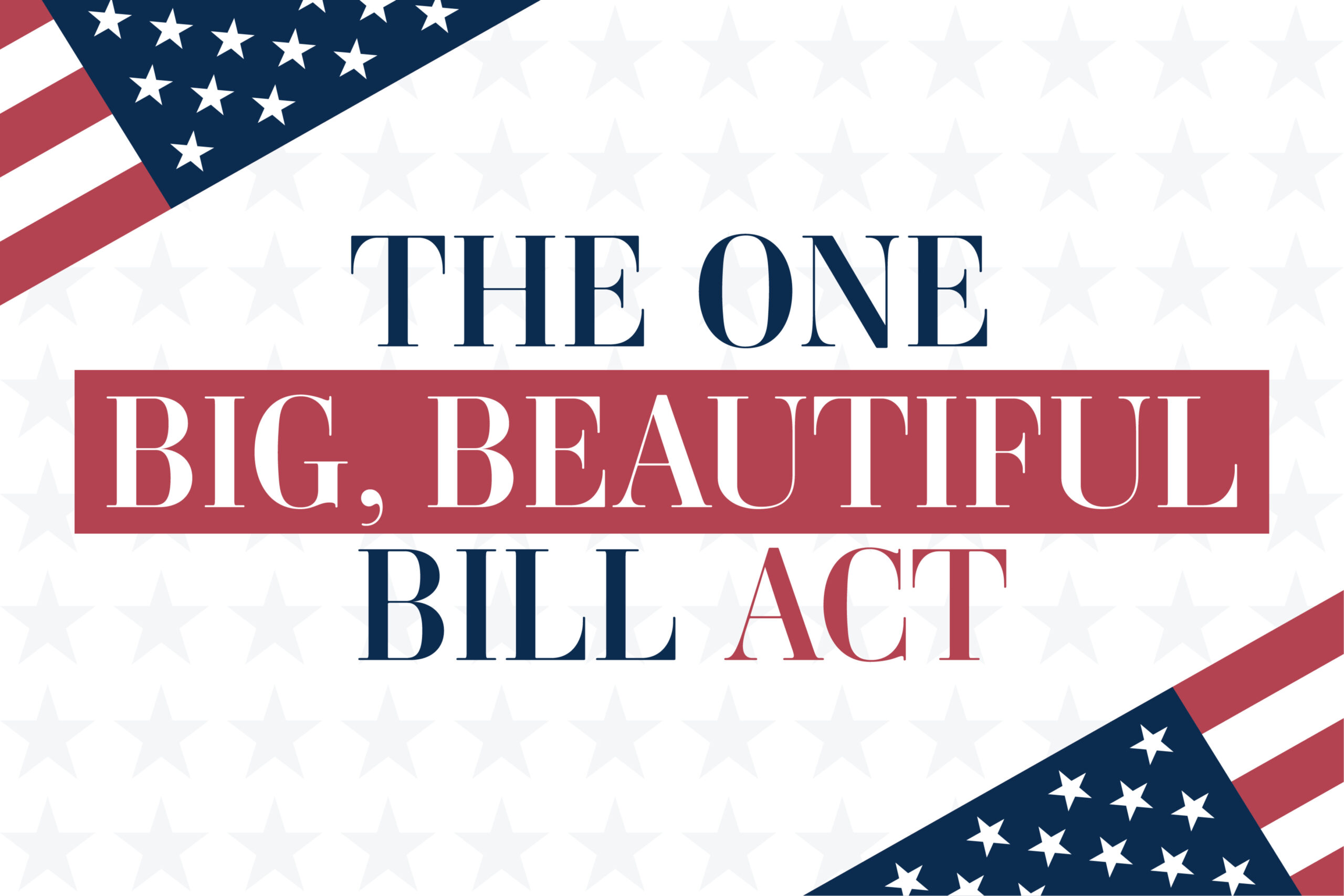OBBBA in Plain English: What Every HR & Finance Leader Needs to Know
Sep 09, 2025On July 4, 2025, Congress and the President signed into law the sweeping One Big Beautiful Bill Act (OBBBA). This new legislation is one of the largest tax and spending packages in recent memory, reshaping everything from tax brackets and estate planning to employee benefits and payroll. While the law is complex, the key takeaways for HR leaders and finance executives can be explained in plain English. Understanding OBBBA is not just about compliance—it’s about unlocking opportunities for your workforce, optimizing your company’s financial strategy, and staying ahead of the curve in a competitive labor market.

What Is OBBBA?
The One Big Beautiful Bill Act, often called OBBBA, is a comprehensive legislative package that touches nearly every corner of tax reform, business finance, and employee benefits. In many ways, OBBBA is an extension of the 2017 Tax Cuts and Jobs Act, keeping popular provisions like lower tax brackets and higher standard deductions in place permanently. At the same time, it introduces new deductions, expands employer-sponsored benefits, and creates significant changes that directly impact HR and finance leaders.
Think of OBBBA as a dual-purpose law: it makes existing tax relief permanent while also reshaping the landscape of employee benefits and business incentives. For companies, that means not only new rules to follow but also fresh opportunities to better support employees while strengthening financial stability.
Why HR and Finance Leaders Should Care
One of the most notable aspects of OBBBA is its direct impact on employee benefits and payroll. Employers now have the ability to permanently offer tax-free student loan repayments as part of their educational assistance programs, up to $5,250 per year. This is a major win for younger employees who are struggling with student debt and gives companies a powerful recruiting and retention tool. Additionally, contributions to Health Savings Accounts (HSAs) have been expanded, with higher contribution limits and broader eligibility. Telehealth expenses can now be reimbursed tax-free without affecting HSA eligibility, which reflects the changing needs of today’s workforce.
OBBBA also made permanent several incentives that had previously been temporary. Employers can continue to benefit from wage tax credits for paid family and medical leave, as well as from credits tied to subsidized childcare. This strengthens the business case for family-friendly policies that not only support employees but also help employers attract top talent. Perhaps most importantly for large organizations, the law does not include any cap on the tax exclusion for employer-sponsored health benefits. This preserves the ability for companies to provide competitive group medical plans without unexpected tax burdens.
From the finance perspective, OBBBA offers substantial new advantages in tax strategy and forecasting. Companies can now permanently expense 100% of qualified business property under bonus depreciation rules, creating significant opportunities for managing cash flow. The law also makes full expensing of domestic research and development (R&D) costs permanent, which is particularly valuable for companies focused on innovation. For businesses thinking about long-term planning, estate and gift tax exemptions are permanently increased to $15 million per individual, or $30 million per couple, starting in 2026. These expanded exemptions create important opportunities for succession planning and wealth transfer strategies.
Another key provision involves the State and Local Tax (SALT) deduction cap. OBBBA raises the cap temporarily to $40,000, though it will gradually revert back to $10,000 by 2030. Finance teams should prepare now for the phased changes. Other new deductions, such as up to $25,000 for tips and overtime pay, $6,000 for seniors, and $10,000 of auto-loan interest for U.S.-assembled vehicles, add additional complexity but also create more planning opportunities for individuals and employers alike.
Finally, HR and finance teams need to be aware of OBBBA’s indirect impact on workforce and benefits planning. With funding cuts to Medicaid and ACA marketplace subsidies, more employees may turn to employer-sponsored plans for coverage. This will make the benefits you offer even more critical in shaping employee satisfaction, retention, and overall wellness.
Key Takeaways for Leaders
For HR and finance leaders, the bottom line is this: OBBBA is about more than taxes—it’s about strategy. On the HR side, the law creates opportunities to expand benefits offerings, from student loan repayment programs to enhanced family leave and childcare support. Finance leaders, meanwhile, need to leverage new tax advantages, from permanent bonus depreciation to R&D expensing and estate planning provisions. Together, HR and finance departments should be working hand in hand to maximize these benefits, communicate changes to employees, and align new opportunities with overall business goals.
It’s also important to think about communication. Employees won’t automatically understand how OBBBA impacts them, but they will appreciate clear messaging around student loan relief, HSA expansions, and family-friendly benefits. Sharing these updates can build morale, improve retention, and strengthen your employer brand. On the finance side, proactive scenario planning is critical. While the new rules offer long-term stability in some areas, provisions like the SALT cap will phase out over time, and organizations should forecast cash flow accordingly.

How Megastar HR Can Help You Navigate OBBBA
At Megastar HR, we understand that navigating complex legislation like the One Big Beautiful Bill Act can feel overwhelming for business leaders. That’s where we come in. Our team of HR, payroll, and recruiting experts is dedicated to helping companies translate regulatory changes into actionable strategies that support both compliance and growth. Whether it’s updating your payroll systems, redesigning benefits to take advantage of new tax-free offerings, or adjusting your recruiting approach to highlight competitive employee perks, Megastar HR makes the process seamless. By partnering with us, you gain a trusted advisor who ensures your business is not only compliant but also positioned to thrive in today’s changing landscape.
Final Thoughts
The One Big Beautiful Bill Act is one of the most significant pieces of legislation in recent years, and it has far-reaching implications for both HR and finance leaders. By breaking it down into plain English, the message is simple: OBBBA offers opportunities to enhance benefits, optimize tax strategies, and strengthen your organization’s overall financial health. The companies that act quickly to adapt—updating benefit offerings, educating employees, and aligning financial strategies with the new rules—will be the ones that turn this law into a competitive advantage.
Ready to get started? Visit our Contact Us page today to learn how we can support your team.
Stay connected with news and updates!
Join our mailing list to receive the latest news and updates from our team.

